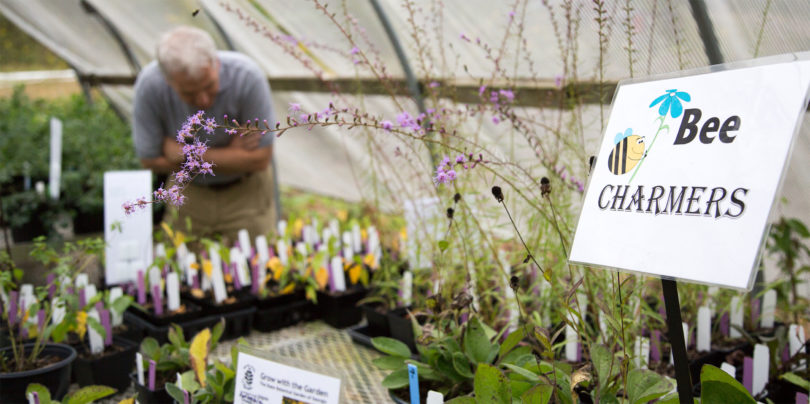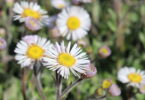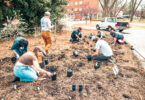What began 21 years ago as an attempt to increase conservation efforts at the State Botanical Garden of Georgia resulted in a Center for Native Plant Studies and educational programming that will help provide long-term sustainability for Georgia.
The Mimsie Lanier Center for Native Plant Studies at the University of Georgia was dedicated on Wednesday. The center features a renovated building with a climate controlled, modern classroom and bathrooms. Greenhouses where native plants such as milkweed coneflowers and black-eyed Susans are grown are also on the site.
The idea for the center began in 1995 when Mimsie Lanier, a member of the advisory board for the botanical garden, heard a presentation on conservation by then-graduate student Jennifer Ceska. Lanier launched a fundraising effort to create a position for a conservation coordinator. Ceska would later be hired to fill that position.
In 2012, Lanier’s husband, Reese Lanier, made a gift to UGA to honor his wife’s service to the botanical garden.
“We are very grateful to both Mimsie and Reese Lanier for their support of the garden,” said Jennifer Frum, UGA vice president for public service and outreach. “This center and the educational programming offered here will be a tremendous help in our efforts to repopulate the state with plants native to Georgia.”
Native plants are species that were here when Europeans arrived in the late 15th century. Georgia has more than 4,000 native plant species, one of the highest numbers east of the Mississippi. This diversity is due to a number of factors:
- There are a number of Northern species in North Georgia, due to its location at the southern end of the Appalachian Mountains.
- There are a few subtropical species in South Georgia due to its proximity to subtropical regions in Florida.
- There are plants in the Southern Coastal Plain that grow nowhere else in the world. That area, which includes about two-thirds of the state, is one of the most botanically rich areas in the country.
- There are more than 60 types of plant communities in Georgia, each with its own suite of plant species.
Despite the numbers, many native species and the size and number of their populations have declined largely due to conversion of native plant habitat to various forms of human use: agriculture, commercial and residential development, and industrial forestry, for example. Other factors in native plant decline are invasion by exotic pest plants and loss of pollinators.
Currently, 737 plant species are considered of “special concern” in Georgia. Of those, about 150 are listed by the state or federal government as endangered, threatened or rare.
It is important to restore these species, as native plants are the foundation of all ecosystems. They produce oxygen, provide food and shelter for animals, reduce air and water pollution and flooding, and prevent soil erosion.
“If we can get people to value plants, whatever plants they love, that’s wonderful. But if we can further connect them to Georgia plants, to Georgia heritage, that can happen through this project,” Ceska said. “That will happen. That is happening. It’s amazing.”
The faculty and staff at the botanical garden offer educational programs to help students, youths and adults learn about the need for native plant propagation.
An 80-hour Certificate in Native Plants is a comprehensive series of short courses in identification, cultivation, propagation, ecology and conservation of native Georgia plants. Every course includes hands-on learning — usually on the paths and among the plants of the garden.
Through the Connect to Protect program, garden faculty and staff work with communities, schools and other organizations to provide necessary information and teaching tools for emphasizing the importance of installing native gardens. In November, the garden staff took about 350 plants grown at the native plants center to Macon-Bibb County, where they were installed in three public parks.
Each January, the State Botanical Garden of Georgia holds a daylong Native Plant Symposium for the public.
“The (certificate) program results in not only a more knowledgeable citizenry who care about and garden with native plants but it has also inspired individuals to conduct amazing conservation projects throughout Georgia,” said Anne Shenk, director of education at the garden.








